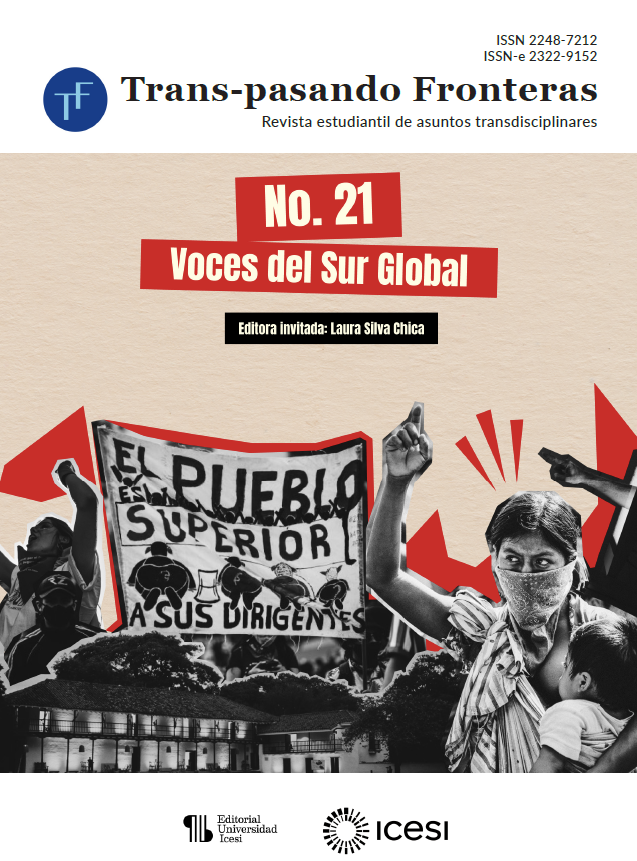When not hearing becomes Unruly
navigating Ambiguity and Authenticity
DOI:
https://doi.org/10.18046/retf.i21.6375Keywords:
Unruly politics, Identity politics, Deafhood, Authenticity, AmbiguityAbstract
This article delves into the dynamic of ‘Deafhood’, to examine its disruptive potential to challenge traditional norms and negotiating complex identities in political settings. Drawing from khanna’s (2016) understanding of Ambiguity and Gilroy’s (1993) conceptualisation of Authenticity, this theoretical analysis aims to explore the tense interplay between personal positionalities and formal collective politics within Deaf communities’ resistance movements. By building on these theoretical foundations, this article seeks to shed light on how ‘Deafhood’ challenge existing power structures and norms by prefiguring new ways of existing as a deaf person. Moreover, this exploration hopes to contribute to our understanding of the intricate dynamics that shape the identities and actions of d/Deaf individual within larger sociopolitical frameworks.
Downloads
References
Gilroy, P. (1993). ‘Jewels Brought from Bondage’: Black Music and the Politics of Authenticity. In E. Striff (Ed.), The black Atlantic: Modernity and double consciousness (pp. 137–151). Macmillan Education UK. https://doi.org/10.1007/978-1-137-05398-5_11
Hall, S. (2010). Sin garantías: Trayectorias y problemáticas en estudios culturales (E. Restrepo, C. Wash, & V. Vich, Eds.). Universidad del Cauca.
khanna, akshay. (2012). Seeing Citizen Action through an ‘Unruly’ Lens. Development, 55(2), 162–172. https://doi.org/10.1057/dev.2012.21
khanna, akshay. (2016). Sexualness. New Text.
Ladd, P. (1999). In search of deafhood: Towards an understanding of British deaf culture [Doctorado].
Ladd, P. (2005). Deafhood: A concept stressing possibilities, not deficits. Scandinavian Journal of Public Health, 33(66_suppl), 12–17. https://doi.org/10.1080/14034950510033318
Ladd, P. (2011). Comprendiendo la Cultura Sorda: En busca de la Sordedad. Consejo Nacional de la Cultura y las Artes.
Palma-García, A. C. (2021). La revolución de las señas: Prácticas médicas como violación de derechos humanos de colectivos Sordos. In Bioética & Derechos Humanos. Universidad Michoacana de San Nicolas de Hidalgo. https://www.researchgate.net/publication/354771356_La_revolucion_de_las_senas_practicas_medicas_como_violacion_de_derechos_humanos_de_colectivos_Sordos
Skliar, C. (1997). Una mirada sobre los nuevos movimientos pedagógícos. XX Reuniao Anual do ANPED, Associacao Nacional de Pesquisadores em Educacao., Porto Alegre. https://cultura-sorda.org/wp-content/uploads/2015/03/Una-mirada-sobre-los-nuevos-movimientos-pedagogicos.pdf
Spivak, G. C. (1994). Can the Subaltern Speak? In P. Williams & L. Chrisman (Eds.), Colonial Discourse and post-colonial theory: A reader. Columbia University Press.
Downloads
Published
Issue
Section
License
Copyright (c) 2025 Ana Carolina Palma García

This work is licensed under a Creative Commons Attribution-NonCommercial-NoDerivatives 4.0 International License.
Trans-pasando Fronteras provides immediate open access to its content on the principle that making research freely available to the public supports a greater global exchange of knowledge.
© Authors hold copyright and publishing rights without restrictions but in accordance with the CC license.
All the material in this publication can be reproduced as long as reference is made to title, author and institutional source.







